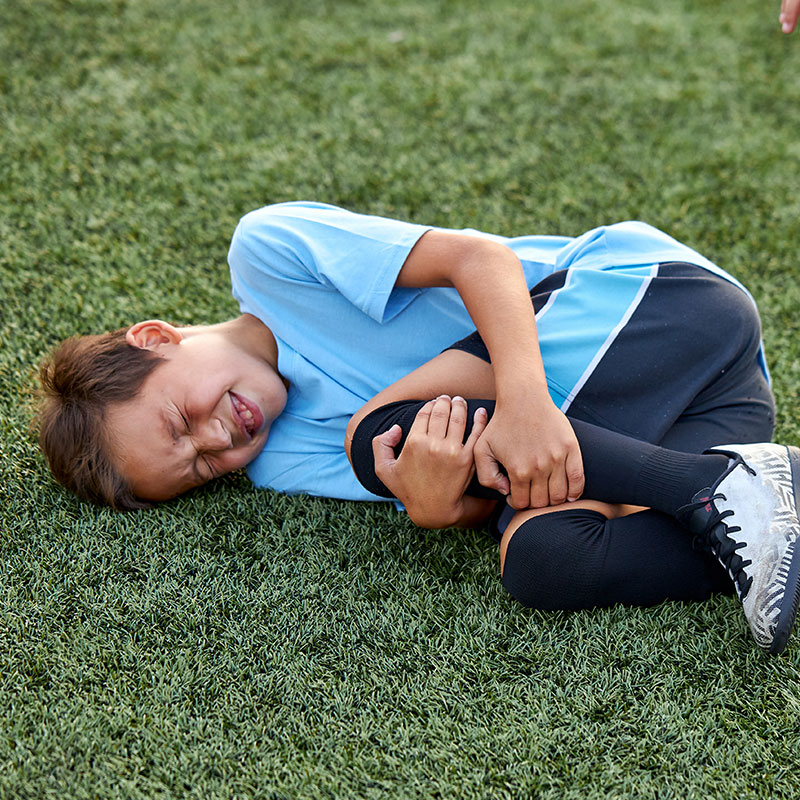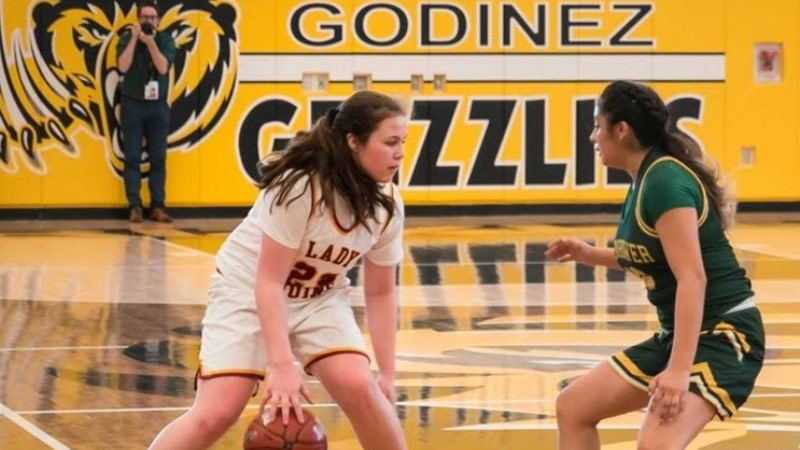Keeping Your Kids Safe, What You Need to Know About Sports Injuries and Prevention
Announcer
This is a weekly dose of wellness brought to you by MemorialCare health system. Here's Deborah Howell,
Deborah Howell
Hello and welcome to the show. You're listening to Weekly Dose of Wellness, brought to you by MemorialCare health system. I'm Deborah Howell And today's guest is Dr. Kenneth Hough, a pediatric orthopedic surgeon and sports medicine specialist at Miller Children's Hospital Long Beach, with a focus in sports medicine, trauma, hip reconstruction and foot deformities. He received his medical degree from Northwestern University Feinberg School of Medicine. Doctor, Huh completed his orthopedic surgery residency at the University of Southern California. Additionally, he completed two fellowships, one in pediatric orthopedics and the other in sports medicine. His clinical interest is primarily in pediatric sports medicine, and he currently is the head physician for three local high school sports teams. Welcome and good morning to you, Dr. Huh.
Dr. Kenneth Huh
Thank you. Thank you for having me.
Deborah Howell
Our pleasure. Today, we'll be talking about sports injuries and how to help prevent them. So what are the most common types of sports injuries?
Dr. Kenneth Huh
The most common things that are, I guess we see in kids are sprains being sprained and sprains for the most common and obviously probably the most commonly sprained ankle joint. Other things are typically seen. Kids that are different than adults would be injuries to the growth plate, which is near the end of the bone. This is the area where kids grow and this tends to be a little bit weaker in kids. The bone and kind of growth is weaker than the ligaments. That's why the injuries here In addition, we see a lot of repetitive motion injuries, kind of stress fractures and tendinitis overuse syndrome. And then the other couple of things we see are concussions and heat related illnesses.
Deborah Howell
Sure. Sure. None of them pleasant. What's the difference between a strain and a sprain?
Dr. Kenneth Huh
So sprain is actually occurs to a ligament. And a ligament is the tissue that connects bone, the bone, whereas the strain happens to muscle or tendon tendon being the muscle turns into a tendon which then goes into the bone that it actually moves.
Deborah Howell
So I've always wondered that. Now I know. Thank you. All right. Let's focus on the two types of injuries, acute injuries and overuse injuries. What's the difference between those two Acute injuries or two? I mean, just by definition, it's something that usually occurs in a specific event. You know, for example, like an ACL, someone's playing soccer. They plan the knee gives out. And it's like in an actual episode that someone can pinpoint. And so like when their pain or the symptoms occurred versus overuse, which usually there's no specific event a pain that kind of comes on over time and worsens over time and due to this repetitive motion.
Deborah Howell
Okay. All right. I can directly relate to the act as I'm sporting a new one in my left knee and I have to say, if you go to your PT, you just never know the difference because I'm fully 100% again. So it's a wonderful thing you're doing.
Dr. Kenneth Huh
Yeah. The therapies I always tell my patients at least 80% of the of the work is having a good therapist
Deborah Howell
It is so true and a good surgeon do. So what factors contribute to overuse injuries
Dr. Kenneth Huh
I think the most important thing would be kind of improper technique, you know, mechanics. You know we see this a lot of the kids who you know for example like people who are pitchers because they get a lot of repetitive things that they try to overthrow the ball. You know, one of the techniques, they're trying to throw the ball as hard as they can. Also, when you're kind of starting what we practice our games, you know, it's good to warm up because if you suddenly if you go into like kind of a sudden or so movements rather than kind of gradually increasing the stress and intensity, it can kind of cause these overuse injuries as well. And then, um, trying to, you know, quote-unquote play through the pain. Another thing that contributes to this. You got to listen to your body. And along those lines, I think you need to make sure that you rest. You got to take at least one or two days off of sport in order to let your body feel is especially important to kids. Of the growing. And like I said before, they're their physiologies all different than adults, and they need time to rest and grow.
Deborah Howell
It's got to be kind of tough for kids on sports teams. When a coach is saying down, do some more burpees and you know, you got a little twinge in your knee and you don't know that burpee take it to the next level.
Dr. Kenneth Huh
Yeah, yeah, I agree. Especially if the dad is the coach too. It's coming up and...
Deborah Howell
Ain't that the truth. All right. Can you share some helpful tips for athletes and parents on some things they can do to help prevent injuries
Dr. Kenneth Huh
First foremost, definitely wearing protective gear and protective gear fits. You know, putting on a helmet that's three sizes big isn't helpful and make sure it's protective gear that's been checked and is up to date and is well fitting. And then like I said before, making sure you warm up a cooldown is important. I know people don't think kids probably think that they don't need to, but as you get older, you realize the importance of it. Yeah, exactly. Oh, that's very yeah, that's very important. Hydration is important. You know, want to make sure you drink plenty of fluids at least 30 minutes before game and then at least every 15 to 20 minutes during the game. You want to be drinking fluid.
Deborah Howell
Are you saying fluid? Do you mean water? Do you mean Gatorade or a mix of both.
Dr. Kenneth Huh
I think what to be the best. I mean, I think it's good to replenish your electrolytes and stuff, but I mean, you can't go wrong with water, old-fashioned H2O and then I think other things would be just, you know, just particular to the kid would be playing with sport and playing kind of the parents should be cognizant of what are the common injuries and then they can kind of educate themselves on how to, you know, prevent those specific injuries because each sport has different things that, you know, are higher risk.
Deborah Howell
Yeah. One is that common to pretty much every sport and that's concussions. So could you tell us what it is, please?
Dr. Kenneth Huh
Yeah, it's basically a form of what they call a traumatic brain injury, TBI, or what they call it. But it's basically, you know, it's like a jarring or shaking of the brain inside the skull that can kind of alter the way your brain works, you know, temporarily so.
Deborah Howell
And what what are the signs and symptoms
Dr. Kenneth Huh
For severe ones? You'd see a loss of consciousness. And then other things, like in terms of thinking, remembering, people all kind of feel slow and they may have problems concentrating. And then you can have problems remembering new things in terms of physical symptoms. They can have headaches, blurry vision, nausea, vomiting, dizziness, loss of balance. And then they can be sensitive to light or noise in terms of kind of like emotional mood changes. You can see people getting irritable or depressed or anxious. And finally, in terms of sleep, yeah, this is kind of yeah, you might not see that right away. These are more kind of things that can manifest after weeks. You know,
Deborah Howell
That's interesting. If it's if it goes untreated.
Dr. Kenneth Huh
Yeah. Yeah. Or these are signs that may not always appear right away. That's the difficult thing with concussions. I mean, a lot of times the things I typically see, like when I'm kind of football games will be, you know, nausea, vomiting or dizziness, kind of the whole feeling slow or not being on the remember thing. But the emotional stuff and the problems of sleep are things that can kind of manifest themselves after a few days.
Deborah Howell
Is this recent discovery? I mean, I hadn't heard this before.
Dr. Kenneth Huh
It has probably become more clear, I think is a lot of more research than being taught in the concussion. You know, I think with all the professional athletes, particularly the NFL, having that their concussion problem is a lot more important than research. I think we've discovered that there are a lot more things that occur with a concussion rather than just what happened in the first, you know, the initial symptoms after the injury that kind of compiled a few things later and not present themselves for a few days.
Deborah Howell
Is there treatment for concussion
Dr. Kenneth Huh
The most important thing for treating concussion is to make sure that you stop playing right away. You know, because there's actually this the big thing is there's a phenomenon called the second hit phenomenon, which is when if you're sustained a concussion and you don't give your brain adequate time to rest and recover, you have another injury or insult to the brain before its fully recovered. It can actually it's not just adding up to concussions. It can actually you know, the effects can be exponential because your brain is already at risk. And then another shock to it can kind of cause it to have a much worse affect if it was just an individual concussion by itself,
Deborah Howell
As you're talking and I'm imagining pro boxers.
Dr. Kenneth Huh
Pro boxers or offensive linemen, defensive linemen, a football or just every player mashing heads with each other.
Deborah Howell
Yeah. Yeah. Well, you do see some of these symptoms manifest in older athletes. Who've maybe sustained multiple concussions over the course of their, say, their boxing career.
Dr. Kenneth Huh
Oh, yeah. I mean, you hear about this, you know, with even with the NFL players, I mean, I think there are a lot of there've been a few people I think most notably recently, I don't know, the Junior Seau of the Hall of Fame Linebacker, you end up committing suicide. They think of a lot of stuff as due to the effects of multiple concussions and the behavioral problems that occurred afterwards.
Deborah Howell
It's just a tragedy. I mean, you're such a superstar he was.
Dr. Kenneth Huh
Yeah. Yeah, for sure. Okay.
Deborah Howell
Well, we're getting to pretty much the end of our show. What other injuries should we be on the alert for that maybe something unusual that we might not typically see in a sports program?
Dr. Kenneth Huh
I think nowadays people are so well versed in being known. They're like what to watch out for in terms of a lot of the big injuries. So I don't think it's too much supplies by I mean, I think the biggest thing right now is just is they having kids be upfront and honest. A lot of kids just want to play so they'll hide their injuries. And then by the time they come out like that, they've got a lot more damage and then like I said, the other thing also is then the flipside being also the parents have to be aware to be willing to step in because I routinely see the parents who think that they're, you know, seven year old child is going to be the next Kobe Bryant. And so they keep pushing their kids. I told them that seven years old, you know, they can take a break and it's not going to affect their NBA career.
Deborah Howell
That's right. That's right. Well, thank you so much, Dr. Huh for finding the time to talk to us today. About keeping our kids safe from sports injuries. It's been a pleasure to have you on the show. I'm Deborah Howell. Join us again next time as we explore another weekly dose of wellness brought to you by the MemorialCare health system. Bye bye.
More than 38 million children and adolescents participate in organized sports in the United States each year. Although sports participation provides numerous physical and social benefits, it also has a downside: the risk of sports-related injuries.
In fact, according to the Centers for Disease Control, more than 2.6 million children 0 - 19 years old are treated in the emergency department each year for sports and recreation-related injuries. These injuries are by far the most common cause of musculoskeletal injuries in children treated in emergency departments. They also are the single most common cause of injury-related primary care office visits.
Related Topics
Related Resources
Related Providers




